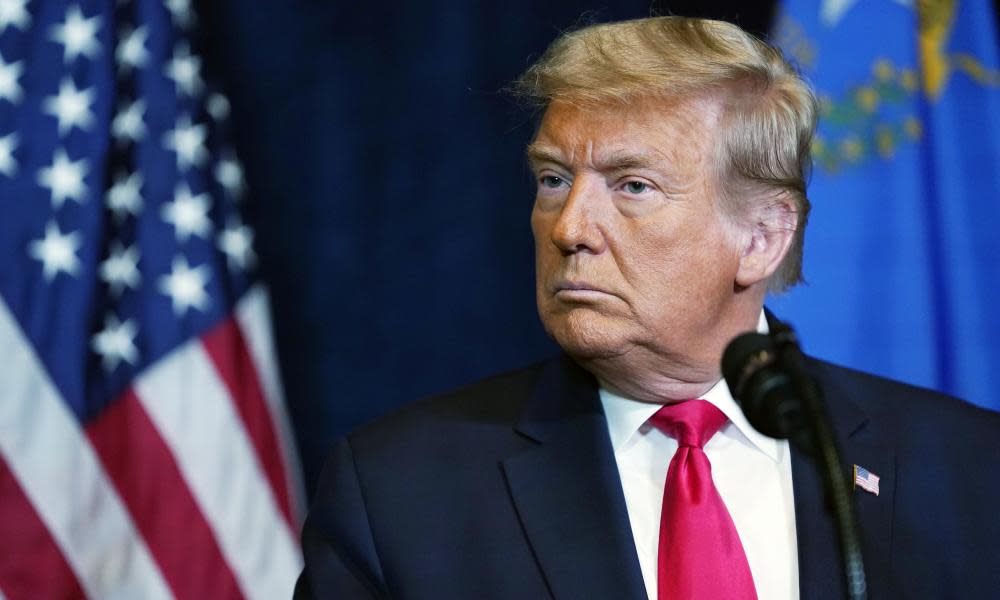The Trump DoJ reports show how loyalists can deform the administration of justice

In 1941, the German Jewish lawyer and political scientist Ernst Fraenkel published a slender volume called The Dual State. One of the first scholarly treatments of the Third Reich, Fraenkel understood Hitler’s state to be characterized by an unusual “dual” character. In large measure, the state operated by arbitrary decree – something Fraenkel called rule by “prerogative”. This “prerogative state” essentially functioned as a form of institutionalized lawlessness. At the same time, the Third Reich also maintained elements of a “normative state” – that is, an administration of justice that remained, at least formally, bound by operative law.
Without drawing any false equivalence with the Nazi state, we can say that the Trump administration likewise demonstrated this dual aspect. This emerges with disturbing clarity in recent reports documenting the lengths Donald Trump went toward turning the Department of Justice (DoJ) into a partisan tool. The Department of Justice, we must bear in mind, is a vast agency with more than 100,000 lawyers, many of whom are exceptionally skilled and principled civil servants dedicated to upholding the rule of law. Yet the reports of the past week make clear how loyalists installed in key positions can rather radically deform the administration of justice while remaining within the formal confines of the law.
We now know that in an effort to identify the source of leaked classified information to various organs of the fake news, Trump’s justice department seized the phone records of reporters at CNN, the Washington Post and the New York Times; subpoenaed tech giants, such as Apple and Microsoft, for the records of at least a dozen members of the House intelligence committee, gaining access to over 100 email addresses and phone numbers of committee chair Adam Schiff, the Californian Democrat; and issued a gag order preventing Apple from notifying Don McGahn, Trump’s erstwhile White House counsel, that his account and his wife’s had also been the subject of subpoenas.
Certainly a president has a legitimate interest in finding the source of classified leaks. But Trump’s DoJ went far beyond any ordinary inquiry, in effect operationalizing the president’s paranoia and fury. In deploying sweeping investigatory powers typically reserved for complex criminal investigations, the justice department treated members of a coordinate branch of government and leading journalists as presumptive felons.
In a sense, only the particulars here are new. It has been well established that Trump sought to use the neutral administration of justice as a tool for shielding friends and settling scores with enemies. Disturbing, then, is only the scope of the operation, and the fact that it was not obviously illegal. For while we can confidently say the DoJ investigation was a gross abuse of power, it remains unclear whether investigators violated any law.
Which returns us to Ernst Fraenkel and one of his keenest insights. In calling the administration of justice a “normative” order, Fraenkel did not mean to suggest that it was necessarily just or fair – a normative order must simply show itself to be rule-bound and formally law-compliant. Indeed, the normative state’s fidelity to rules could serve the toxic aims of the prerogative state. For Fraenkel, a signature feature of the Third Reich was the way in which Hitler’s arbitrary decrees and violent orders were implemented by rule-following legal officials. A normative order can easily become the instrument of manifest injustice.
In Trump’s justice department things never reached such an extreme. In part, this is because career lawyers, by threatening to resign en masse, were able to push back against Trump’s final and most extreme gambit – enlisting departmental resources and prestige to back his big lie that a conspiracy of fraud cost him the 2020 election. But we also know that the most effective stop to Trump’s deformations of the justice department came on 20 January, with Joe Biden’s inauguration. As Fraenkel reminds us, the administration of justice ultimately acts less as a check upon than as a reflection of a nation’s leader.

 Yahoo Movies
Yahoo Movies 
